Frunze against Wrangel. The retreat of the White Guards from Tavria to the Crimea
A decisive battle took place in Northern Tavria a hundred years ago. The Red Army defeated Wrangel's Russian army. With great difficulty the White Guards broke through to the Crimea, having lost up to 50% of their personnel in battles.
The general setting
After a heavy defeat in the Zadneprovsky operation, White went over to the defensive. Meanwhile, the Red Army qualitatively and quantitatively increased its forces in the Crimean direction. First, Frunze came to an agreement with Makhno. The Makhnovists again sided with the Bolsheviks against the Whites. Makhno and his commanders fielded 11-12 thousand soldiers. At the call of Makhno, the atamans who joined him with their detachments and part of the peasants mobilized by White fled from Wrangel's army. The situation in the rear of the White Army deteriorated significantly, many insurgents and partisans in the Crimea and Tavria considered themselves to be supporters of the Makhno line.
Secondly, Poland made peace with Soviet Russia. Moscow had to give Warsaw the regions occupied by the Poles in Western Belarus and Western Ukraine, which were the consequences of the erroneous decisions of the military-political leadership headed by Trotsky (dreams of a red Warsaw and Berlin) and the mistakes of the high command and command of the Western Front headed by Tukhachevsky. The Blitzkrieg in the west ended in failure. However, the Red Army was numerically strong (5 million fighters on all fronts and directions) and significantly increased in quality, and the Poles understood this. They felt it in the fierce battles for Lviv, Warsaw, Grodno and Kobrin. The Polish leadership hastened to make peace until the Reds recovered from their failures, defeated the White Guards and pounced on Poland with all their might. The Second Rzeczpospolita was exhausted by the war and was in a hurry to emerge victorious from the war. Peace was concluded, troops from the Polish front began to be transferred to the South.
Third, the Soviet command made a powerful regrouping of forces in October 1920. 80-90 thousand people were transferred to the Southern Front. From the Western (Polish) Front, control of Lazarevich's 4th Army, Budyonny's 1st Cavalry Army was transferred, from Siberia - the powerful 30th Infantry Division (3 rifle brigades - each with three regiments, a cavalry regiment). The new 3rd Kashirin Cavalry Corps (5th and 9th Cavalry Divisions) has been formed. The number of Frunze's troops increased to 140 thousand people (there were 100 thousand people directly on the front line) with 500 guns, 2,6 thousand machine guns, 17 armored trains, 31 armored cars, about 30 aircraft. According to other data, the number of the Southern Front before the offensive consisted of 180-190 thousand bayonets and sabers, about 1 thousand guns, 45 aircraft and 57 armored vehicles.
Against the Red Wrangelites (1st and 2nd armies, shock group) could deploy about 56 thousand bayonets and sabers (directly on the front line - 37 thousand soldiers), over 200 guns and 1,6 thousand machine guns, 14 armored trains, 25 tanks and 20 armored cars, 42 aircraft. At the same time, the White Guards were drained of blood and demoralized by the just-completed defeat on the Dnieper. We did not have the opportunity to quickly replenish the ranks. The Red Army men, on the contrary, were inspired by the victory. The personnel structure of the Russian army by October 1920 had changed markedly for the worse. Cadre frontline officers, volunteers and Cossacks were driven out by incessant battles. In their place came former insurgents - "green", prisoners of the Red Army, mobilized peasants. The fighting efficiency of the army dropped sharply, many soldiers at the first opportunity tried to surrender and go over to the side of the Red Army.
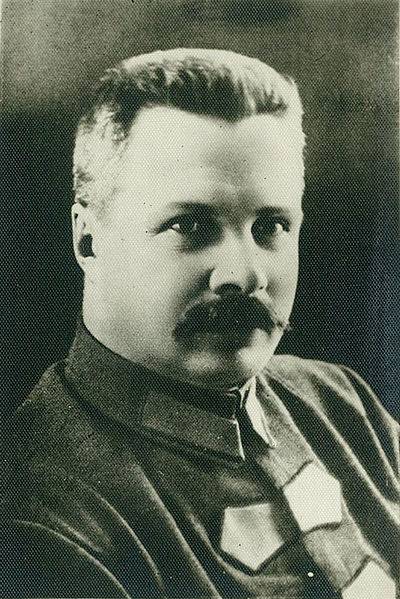
Mikhail Frunze in the early 1920s
Party plans
Despite the heavy defeat and unsuccessful disposition of the troops, the large numerical superiority of the enemy (3-5 times), the dispersion of troops in different directions, the white command abandoned the idea of retreating to the Crimea. Although the chief of staff, General Shatilov, proposed to withdraw the troops to the peninsula, fearing the encirclement and death of the army. It was decided to take battle in Northern Tavria. Wrangel underestimated the strength and capabilities of the Red Army, believed that his troops, as before, would be able to reflect the enemy's blow. Withdrawal from Tavria to Crimea deprived the White of important resources and room for maneuver. Also, the commander-in-chief of the Russian army proceeded from the political situation. The withdrawal of white troops to the Crimea could lead to the refusal of France to provide assistance to the whites. And put an end to the possibility of the passage of the White Guard units from Poland through Ukraine. This error in calculations hastened the defeat of the White Army.
The two-week hiatus allowed White to replenish parts at the expense of spare parts. But the replenishments were weak, "raw". Another reorganization of the army was also carried out. The 1st army of Kutepov included the 1st and 2nd corps, she held the defenses on the Dnieper and in the northern direction. 2nd Army - 3rd Army and Don Corps, covered the eastern flank. General Abramov was appointed commander of the 2nd Army instead of Dratsenko. The reserve was Barbovich's Cavalry Corps and the group of General Kantserov (formerly Babiev's group). Believing that the Reds would strike the main blow from the Nikopol area, in the 20th of October, Wrangel began to withdraw units of the 2nd Army to the southwest, to Chongar.
Frunze was in no hurry with the operation, he prepared it carefully. The command of the Southern Front developed an offensive plan based on the geographical features of the theater of operations. The troops advanced in converging directions to destroy the white troops in Northern Tavria and prevent them from leaving for the Crimea. The main blow was delivered by the Western grouping: the 6th Army of Kork and the 1st Cavalry Army of Budyonny. The western group was supposed to attack from the Kakhovka area in the direction of the isthmuses and Sivash, take Perekop and Chongar, cutting off the enemy from the Crimean peninsula. The northern group, Lazarevich's 4th Army and Mironov's 2nd Cavalry Army, struck from the Nikopol area to Chongar in order to smash, dismember and encircle the elite enemy troops (Kornilovskaya, Markovskaya and Drozdovskaya divisions, cavalry corps). Then the Northern group was to break through to the Crimea through the Chongar Isthmus. The eastern group, the 13th Army of Uborevich, from the Orekhov-Chernigovka region, inflicted an auxiliary blow on Tokmak and Melitopol in order to bind the enemy forces and prevent him from leaving the peninsula.
Main battle
White began the battle. On October 20, 1920, they tried to launch an offensive in the direction of Pavlodar. However, the Wrangelites got bogged down in battles with the Makhnovists and the 42nd Infantry Division of the 13th Army. On the 23rd, the Makhnovists and units of the 4th Army, having overturned the Northern Group of Wrangel's army, entered Aleksandrovsk. On the 24th the Makhnovists rushed along the rear of the Whites to Melitopol. Having broken through to B. Tokmak, Makhno turned sharply to the north-east and moved to Gulyai-Pole. This was a violation of the order. A stubborn battle unfolded for Gulyai-Pole, which drained Makhno's group.
On October 26, Mironov's army crossed the Dnieper in the Nikopol region, threw back the Kornilovites and occupied two bridgeheads. On October 28, the general offensive of the Red Army began. The operation was carried out in severe frost (unusual for these places) and a blizzard, which hid the movement of troops. The White army was unprepared for the "unexpected" onset of winter. There was no winter uniform. The soldiers, in order not to freeze, left their positions and went to the villages. Hundreds of fighters were frostbitten, morale dropped even more.
The Western grouping of the Southern Front achieved the greatest success. Two shock groups attacked from the Kakhovsky bridgehead: the 15th and 51st rifle divisions marched south towards Perekop; The 1st Cavalry and the Latvian Division were aiming southeast to link up with the 2nd Cavalry. The 6th Army, which attacked from the Kakhovsky bridgehead, broke into the defense of Vitkovsky's 2nd corps and moved to Perekop, driving the enemy in front of it. The breakthrough immediately entered the army of Budyonny. On October 29, the Reds took Perekop. The main forces of the whites in this direction retreated to the peninsula. The Reds went to the rear of Kutepov's 1st Army. However, the Red Army could not break into the Crimea on the move. The 51st division of Blucher, with the support of artillery, tanks and armored cars, stormed the Perekop fortifications, in places broke into the Turkish Wall, but was thrown back by an enemy counterattack. Reds in this area went on the defensive.
Army Budyonny, leaving behind the Latvian riflemen, deeply entered the rear of the enemy and was preparing to go to join Mironov's cavalry. The front command, believing that the 2nd Cavalry Army was successfully advancing and did not need help, ordered the 1st Cavalry Army to go south. Budyonny arbitrarily divided the army: the 6th and 11th cavalry divisions went north according to the old plan, and the army headquarters with the 4th and 14th divisions, a reserve cavalry brigade went south. This was a serious mistake, it was impossible to disperse the forces of the Cavalry. The Budennovists went to the Agayman region and on the Sivash coast, broke through to Chongar to cut off the Wrangelites from the peninsula. They intercepted the railway to the Crimea. As a result, the White Army fell into the "cauldron". Wrangel's headquarters in Dzhankoy was cut off from the front. The headquarters managed to order Kutepov to combine the forces of the 1st and 2nd armies and break through to the peninsula.
On the same day, the Crimean group of Makhno (5 thousand sabers and bayonets, 30 guns and 350 machine guns) broke into Melitopol. However, the offensive of the Northern and Eastern groupings of the Southern Front was halted by fierce enemy resistance. The 4th and 13th armies could not fulfill their assigned tasks, dismembering the enemy's defenses. The Reds pressed the enemy, Abramov's 2nd Army slowly backed away, clung to every line, and snapped hard. The 2nd Cavalry Army could not advance beyond B. Belozerka, getting bogged down in battles with three Cossack divisions.
On October 30, the Budennovites gained access to Crimea through Chongar. The white command gathered all the forces available on the peninsula (cadets, Fostikov's brigade, artillery school, the commander-in-chief's convoy) and threw them into the defense of the isthmus. The slow advance of the Northern and Eastern groupings of the enemy allowed the Whites to regroup their forces, cover themselves with rear guards and rush the whole army for a breakthrough into the Crimea. A strike group was concentrated in the Agayman area: Drozdovskaya, Markovskaya and Kornilovskaya infantry divisions, cavalry. At the same time, the Don Corps with a strong counterattack fettered the 2nd Cavalry Army. The Donets defeated the 2nd Cavalry Division. With a blow from the north, the White Army was making its way to the Crimea. White cavalry was able to beat Budyonny's divisions separately. First, Barbovich's corps threw Morozov's 11th cavalry division back, then hit Gorodovikov's 6th division. In a stubborn battle that lasted several hours, two of Budyonny's divisions were defeated.
On October 31, Frunze ordered Budenny to gather strength into a fist and stand to death. Mironov was ordered to break through to Salkovo, to the aid of the 1st Army. However, Budyonny could no longer carry out this order. The connection between the parts was lost. They fought separately. The 6th and 11th divisions, defeated on the eve, received reinforcements from Latvians and established themselves in the Agayman area. Selected units of the 1st Army Corps came here and again defeated the red cavalry. The 11th Division lost its entire command staff. Having covered himself from the attacking Latvians with the Kornilov division, Kutepov led the remaining troops to Otrada and Rozhdestvenskoye. In Otrada, the White Guards defeated the reserve cavalry brigade and the headquarters of the 1st Cavalry. Voroshilov was barely saved. Budyonny demanded that Timoshenko's 4th cavalry division be sent to his aid, but it was tied up in battle with the donors and units of the 3rd army corps. And the 14th Cavalry Division of Parkhomenko in Rozhdestvenskoye was defeated by Barbovich's corps. The 1st Cavalry Army was thrown back from Chongar, blocking at Salkov and Genichesk, pressing it to Sivash. Army Budyonny did not expect a strong blow from the seemingly defeated enemy, was defeated in parts and itself was under threat of defeat.
As a result, on October 30-31, 1920, the corps of the Russian army made their way through the disposition of the troops of the 1st Cavalry Army. Barbovich's cavalry corps and Kutepov's infantry successively defeated the 6th, 11th and 14th cavalry divisions, Budyonny's headquarters lost contact with the troops. October 31 - November 1-2, most of the White Army, repelling the attacks of individual units of the Reds, left Tavria for the Crimea. Only on November 3, the gap in Chongar was closed by units of the 4th, 1st Cavalry and 2nd Cavalry armies. On the same day, the Reds broke through the enemy's defenses on Sivash and occupied Chongar. The Whites blew up all the bridges to the Crimea. It was not possible to surround and destroy Wrangel's army. But the White Army lost Northern Tavria, its base and bridgehead, and suffered a heavy defeat. Its losses amounted to 50% of the personnel killed, wounded, frostbitten and captured. Material losses were also great.
Frunze noted:
- Alexander Samsonov
- https://ru.wikipedia.org/, http://militera.lib.ru/, https://bigenc.ru/
- Smoot. 1920 year
Battle of Rostov
The disaster of white Odessa
How Slashchev Crimea defended
Dono-Manych battle
The death of the Northern Army Miller
Why Western agent Kolchak is turned into a hero and martyr of Russia
The defeat of the army of Denikin in the battle of Tikhorets
How did the Ice Siberian campaign end
The fall of the White Kuban
Agony of White Novorossiysk
The death of the Kuban army
Denikin's resignation
Far Eastern Republic and the Japanese threat
Polish "liberation" campaign in Kiev
Baku “Blitzkrieg” of the Red Army
The battle for Belarus. May operation of the Red Army
War of the Russian Army Wrangel
The first victories of the Wrangel army
The defeat of the 13th Soviet Army in Northern Tavria
Our Kiev!
The battle for Rivne. How Budyonnovtsy smashed the Polish defense
Minsk is ours! The defeat of the Polish army in Belarus
Battle for Lviv. The failure of the Red Army in Galicia
The death of the cavalry group Rednecks
The fierce battle for the Kakhovsky bridgehead
The defeat of the landing group Ulagaya
"Miracle on the Vistula"
How Tukhachevsky destroyed his armies on the Vistula
Battle of Komarov. Defeat of the 1st Cavalry Army
Bukhara Blitzkrieg Frunze
"The danger of Wrangel is becoming enormous ..."
Battle on the Lower Dnieper
The last offensive of the Russian army
Battle of the Neman
Defeat of Tukhachevsky on the Neman
The defeat of the 3rd Soviet army in Belarus
The defeat of the Red Army on the Shara
How Turkey attacked Armenia
Armenian defeat. How the Turkish army captured Kars and Alexandropol
The defeat of Wrangel's army in the battle on the Dnieper
Defeat of the Far Eastern Army. How the "Chita plug" was eliminated
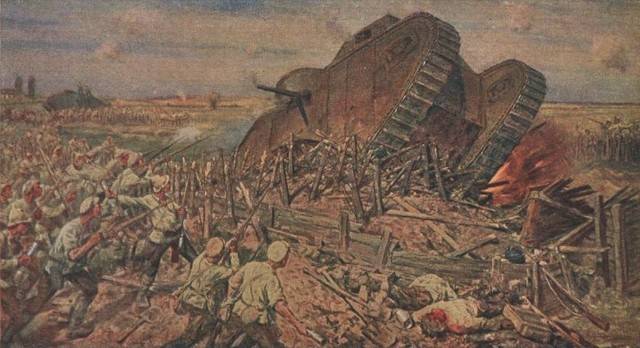
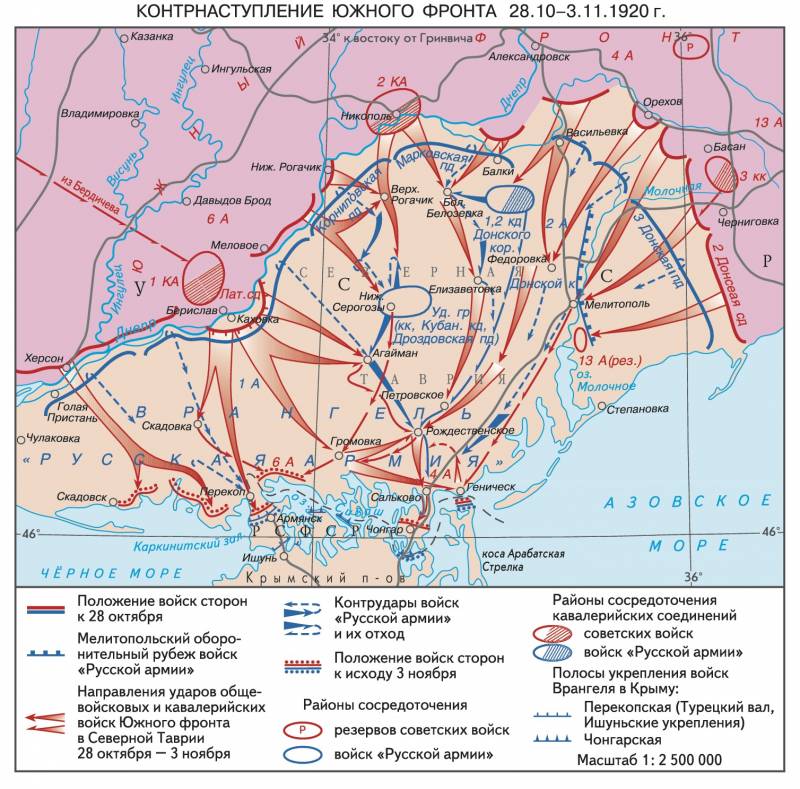
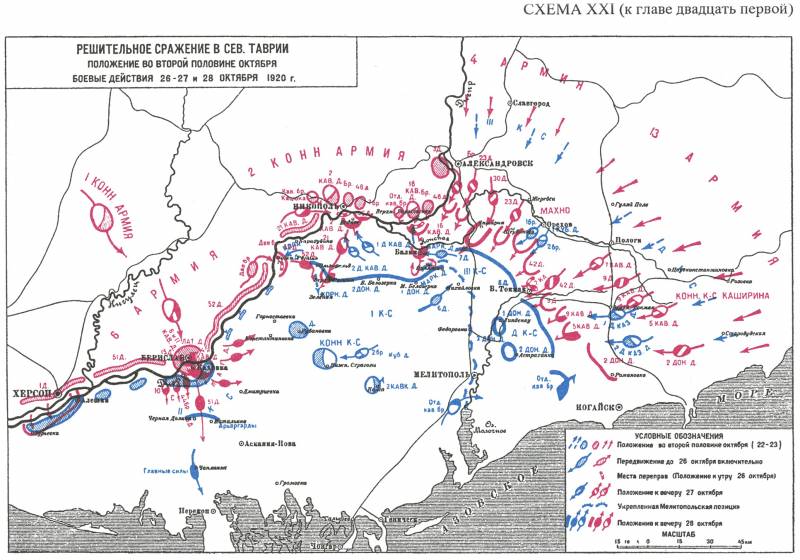
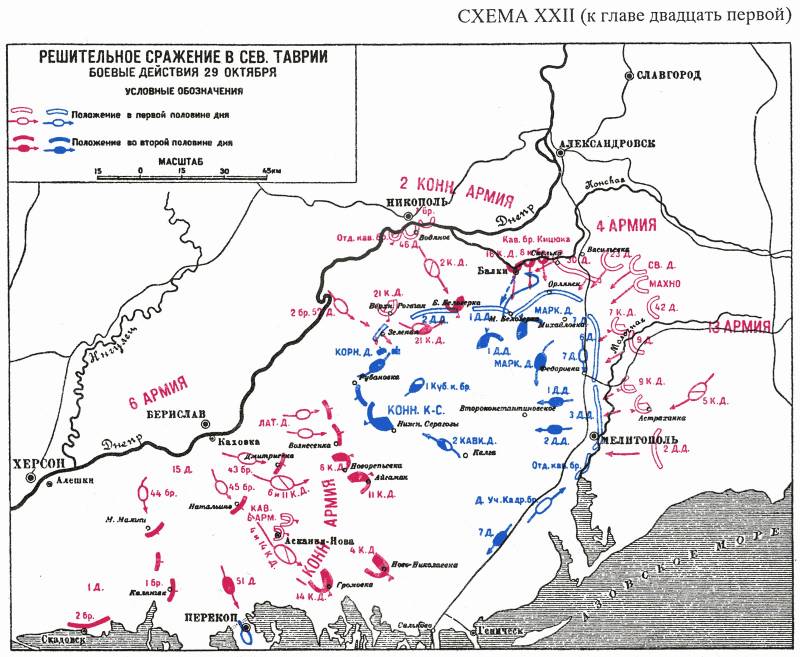
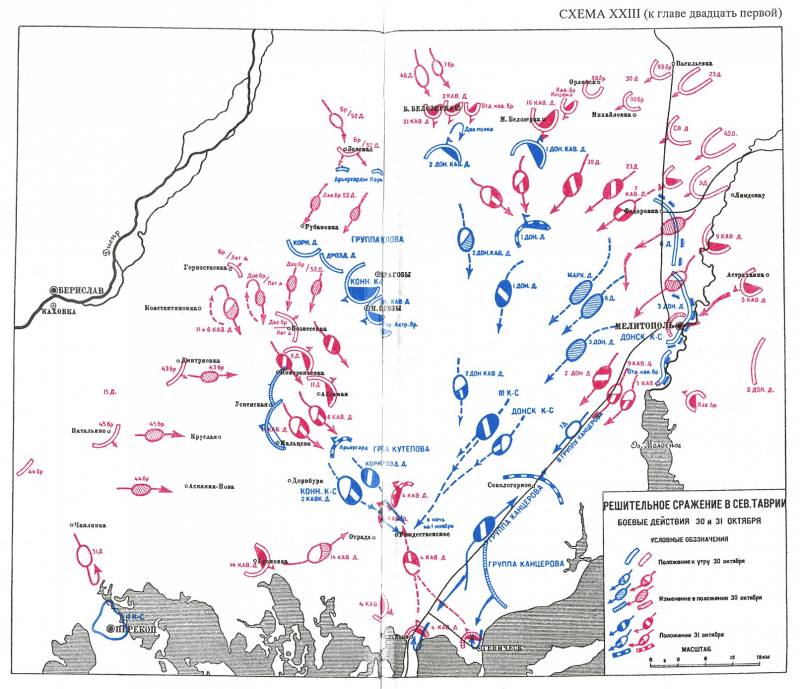
Information